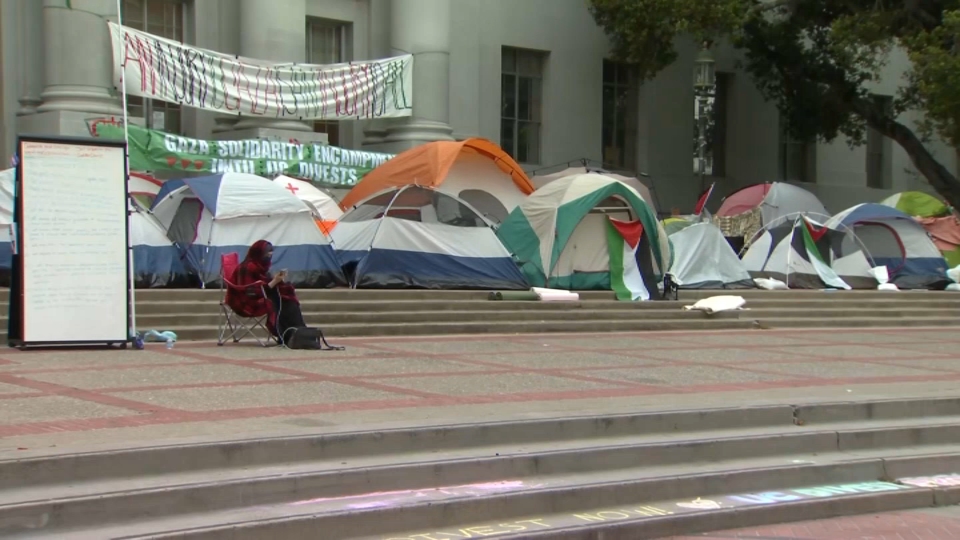Melissa Cruz’ life is full of motion — jarring stops, dramatic twists, hypnotic rhythms — and that’s just when she’s on stage.
As one of the Bay Area’s stalwart Flamenco dancers, Cruz has carved out a niche in the traditional Spanish art form — becoming one of the most prolific practitioners in the East Bay where she makes her home. And yet, when it comes to heritage, Cruz’ chops aren’t Spanish at all -- she was born in the Philippines.
“It is a very curious,” she said with a pause, “I guess very unique thing to do.”
Cruz’ life has traversed the unique since early on. She was four when her father moved the family from the Philippines to Brooklyn to take a medical job. Not long after, the family decamped to New Orleans where Cruz grew up. In a city known for gumbo and zydeco, the Cruz family instead found home ground among the city’s small Filipino community, where Cruz came to know her heritage.
Get a weekly recap of the latest San Francisco Bay Area housing news. Sign up for NBC Bay Area’s Housing Deconstructed newsletter.
“I remember being sort of immersed in two very different cultures,” Cruz said, flanked by walls of mirrors in her Oakland dance studio, “New Orleans culture and Filipino culture.”
It was in New Orleans that she began to discover yet another important culture - the world of dance. She took tap, jazz, ballet and a requisite New Orleans skill -- baton twirling. But it wouldn’t be until later on, after she’d moved to the Bay Area to attend Cal Berkeley that she’d find her true calling. She planned to study law at Cal but a different seed was planted when her Spanish teacher showed the class a film of the opera Carmen put to Flamenco.
“I don’t know how to describe it,” she said, “but I felt an urgency that I needed to do that.”
Local
She sought out Flamenco dance classes and then dove head-first to the art form. She was drawn to Flamenco’s simple yet powerful alchemy of guitar, voice and dance. The percussion of heels pummeling floor, hand claps, castanets and the dramatic gyrations of the dancers drew her in.
As she progressed into Flamenco, more and more of her personality began to come out in her dancing. On occasion her footwork would summon the syncopated flurries of a rock drummer as she floated along with the rolling staccato accompaniment of a nylon string guitar.
“The moments of most joy,” she said, “are those moments when I feel free in my interpretation.”
And yet, as a Filipina woman performing a different culture’s signature art, Cruz felt a tinge of guilt. Perhaps what weighed on her most was the historical fact that Spain had occupied the Philippines for three-centuries. The other uncomfortable moments came when people would assume because she danced Flamenco Cruz she was of Latin heritage.
“It’s very rare that people look at me and they identify me as Filipina,” she said. “It reminded me of my identity as being Filipina and how I feel doing this art form that is not mine really.”
Cruz said the guilt comes and goes, but she carries on headfirst into a passion she loves purely. In her two decades as dancer, she performs as often as she can and now even teaches Flamenco classes from her Oakland studio. On top of that, the rhythms that percolated in her feet now permeate her entire being — as she plays drums in several bands, sometimes doing double duty as a dancer/percussionist.
It’s almost as if Cruz had to dive into a different culture to truly find her place within her own, a melding of cultures and discovery that are hallmarks of the great melting pot. Those thoughts sometimes come to Cruz when she’s on a stage, in her traditional Flamenco clothing, with the music pulsing and a crowd’s emotions rising and twisting with her every move.
“Those moments I’ve come to appreciate as being really unique and different every time,” Cruz said, “which in my mind is the best way to find out about yourself and who you are.”



